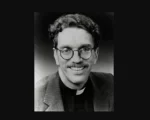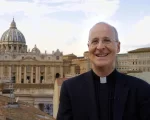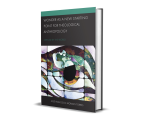News
The Rev. Steve Pieters, Who Changed Minds About AIDS, Dies at 70
His vanguard interview with Tammy Faye Messner (Bakker at the time) aired in an era when fear and false information about HIV/AIDS ran rampant in conservative Christian communities.
Mennonites Confront Climate Change With Generation Z
This issue A Public Witness pulls up a chair at the Mennonite Church USA’s Youth & Young Adult Climate Summit in order to discover new ways for all of us to meaningfully engage in creation care, and to do so in full partnership with the Gen Zers in our communities.
How an Upstart Conservative Group Is Taking Christian Nationalist Politics Local
Meet the group critics call ‘Moms for Liberty in suits.’
After Quran Burnings, UN Rights Body Calls for More Action to Combat Religious Hatred
After the vote, Ambassador Khalil Hashmi of Pakistan insisted the measure “does not seek to curtail the right to free speech,” but tries to strike a “prudent balance” between it and “special duties and responsibilities.”
Court Sides With Amish Families in Case That Pits Septic Tank Rules Against Religious Beliefs
A three-judge panel ruled that the government “failed to demonstrate a compelling state interest” to justify overriding the religious freedom of the Amish families that challenged state regulations governing the disposal of gray water.
Father Martin Hopes To Bring LGBTQ Voices in Synodal Discussions
The Rev. James Martin, an advocate for LGBTQ inclusion in the church, has been tapped by Pope Francis to attend the synod.
Geneva College Soccer Coach Fired After Expressing Support for LGBTQ People
In early April, Kelsey Morrison posted two messages to her Instagram page: ‘Queer people offer precious gifts to the church: Don't miss out’ and ‘Jesus is radically inclusive.’
Faith in the Land of the Midnight Sun
This issue of A Public Witness travels to Norway to hear from Christians who are wrestling with what it means to live and witness as a Christian in a post-Christendom society.
Review: Wonder as a New Starting Point for Theological Anthropology
As part of a series on "Postcolonial and Decolonial Studies in Religion and Theology," author José Francisco Morales Torres makes the case that wonder is not something we produce or seek but rather something that captivates and takes hold of us.
Many African American SBC Churches Have Women Pastors on Staff. Will They Be Expelled Next?
A letter from the president of the SBC's National African American Fellowship expressed concerns over recent SBC decisions to bar churches with women pastors.










